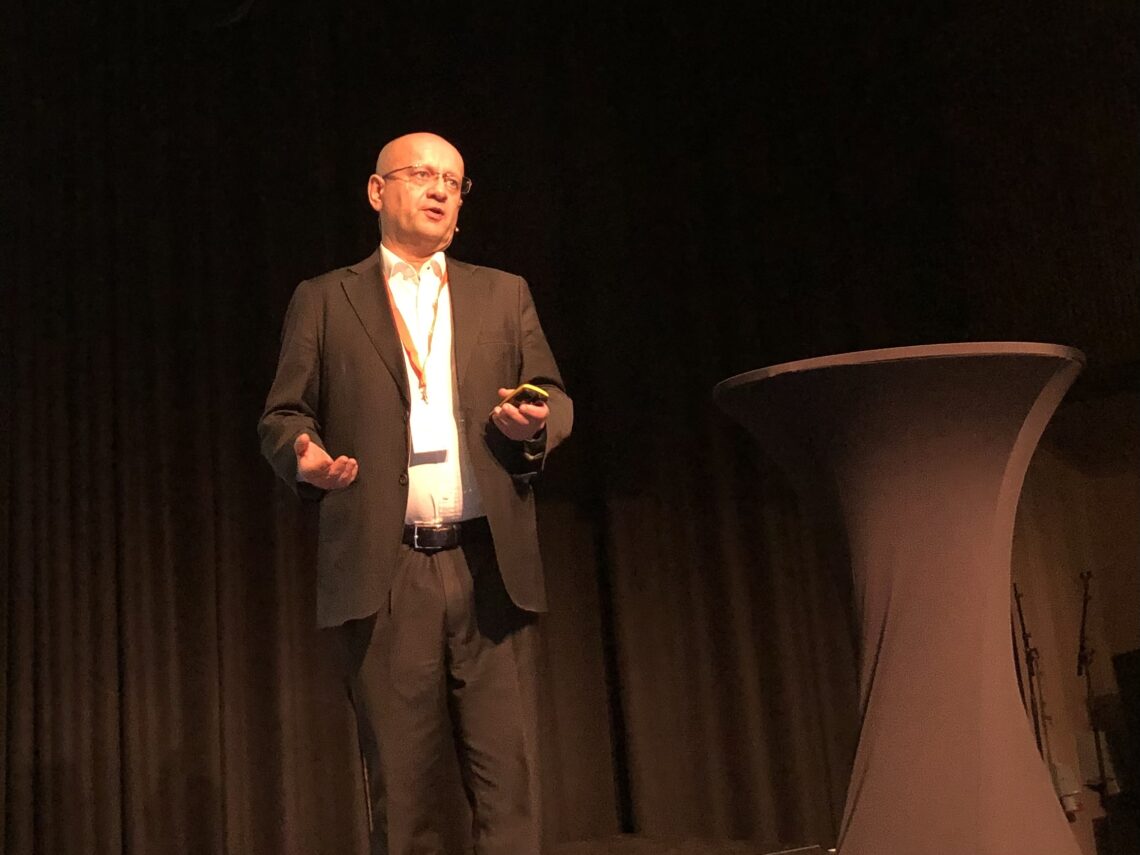Dag Sletmo has just returned from the climate summit in Glasgow, and is visibly affected by it. The DNB Executive Vice President is highlighting the explosive rise of average temperatures over the past 2000 years.
“Food production is behind a third of climate emissions. When you produce food, you are part of the problem, but you can not stop producing food,” he said, referring to climate activist Greta Thunberg’s black-and-white approach – either you are with us or you are against us.
The tide
Sletmo is here to meet a couple of hundred people assembled in the oil city of Stavanger in the south of Norway, more specifically at Clarion Hotel Air, close to Sola airport.

“It has been the case that the tide lifts all boats in the aquaculture industry. The tide is, of course, the price of salmon. But I think this will change, with new technology,” said Sletmo.
The old salmon analyst, who has switched to the credit side of the financial industry, is emboldened to make predictions about the coming years as a turning point for the salmon industry.
“The salmon’s OPEC is collapsing. The salmon’s OPEC is the salmon lice, and if the restrictions on the supply side fall, margins will fall, by perhaps 50 per cent,” he predicts.
“We want to move from a swine cycle model to a shipping cycle model, where the shipping cycle is the life of the ships,” says Bergen resident Sletmo, who is centrally located in the group management of the world’s largest aquaculture bank.
Innovation
The implication of this turning point is that strategic choices for breeders will be more complicated, he believes.
“The industry must win the green race,” said Sletmo. “The industry must think through who in the value chain will drive the innovation and the technological development. This is a huge opportunity for the supplier industry.”
“Aquaculture can be Norway’s best opportunity to fight for the climate. Not everyone can eat salmon, but salmon can contribute internationally,” he says, noting that salmon can be the Tesla of the aquaculture world as we move from fossil to electric propulsion.

